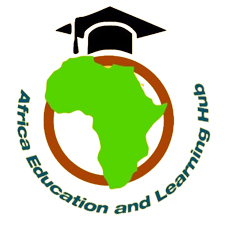Domestic_Financing_of_Education_in_South_Sudan_EH.pdf

View/
Date
2022Author
Kobia David Simon
Type
Conference ReportLanguage
enItem Usage Stats
1,122
views
views
715
downloads
downloads
Abstract
Goal number one of the social service clusters in the Revised National Development Strategy (R-NDS) 2021- 2024 states the desire to put in place a plan for human capital development through deliberate investments in education by providing adequate infrastructure, teacher education and training curricula. This demonstrates South Sudan’s government commitment to invest more resources to education sector. Over the past decade, the discourse on domestic financing of education has gained prominence across the world. Governments should commit more resources from national budgets to education as opposed to relying on external funding sources. True independence and sustainability come when a country can meet its financing needs from domestic sources of revenue. It is imperative that governments in Africa understand this fact and enact laws and policy programs that augment domestic revenue generation and management. Since its independence in 2011, South Sudan has grappled with various political, social, and economic challenges that have had an impact not only on education sector, but overall people’s livelihoods and welfare. Education sector has for the past decade received an extremely low share of national budget, averaging below 6% between 2010 and 2020. Post 2020 allocations show governments new commitment to finance education, allocating up to 17% of national budget in 2022/23 fiscal year. Expectations are this will be maintained considering observed erratic and rapid budget fluctuations in the past. This paper presents an analysis of education sector budget in South Sudan, presenting a trend over the last ten years in both allocation, execution, and growth. It further compares education sector budget with other key sectors of the economy to demonstrate the financial priority accorded to education in the country as well as a comparison of education financing and resultant status of selected education indicators in two countries in the East African Community. The paper further looks at the budget cycle and related vital documents that education actors should focus on if they are to influence education sector budget at all. The paper further highlights sources of public funding in the country with a view to enabling stakeholders appreciate where more funds for education can be obtained. The paper concludes by making policy recommendations that education actors in South Sudan should pursue to boost investments in education sector in the country.
Description
It is estimated that 2.8 million school-aged children in South Sudan are not receiving any form of formal education. Prolonged conflicts and political upheavals have worsened the situation which has affected a wide range of people’s welfare and livelihoods. Diverse groups of people face major challenges in accessing quality education in South Sudan. These include children living in conflict affected and remote areas, children in internal displacement camps, those with disabilities, child laborers, children in street situations, girls, and children from pastoralists communities (UNICEF, 2021). Availability of adequate quality teachers is a key determinant of quality of education. It is estimated that more than 70 per cent of primary-level teachers are untrained or underqualified, who are often demotivated by poor terms and conditions of service. These demotivating factors include extremely low pay which is irregularly paid out and difficult working conditions with large classes and scarce teaching and learning materials. School closures because of insecurity disrupt curriculum implementation and lead to trauma which affects the morale of pupils, teachers, and the community.